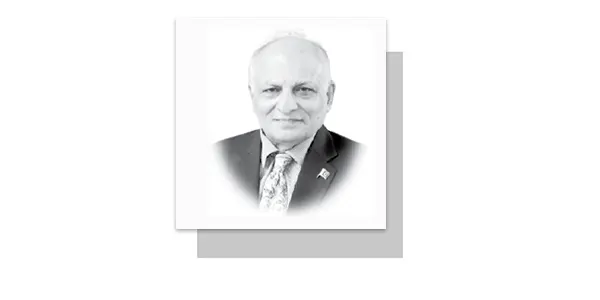ANY country that goes through the ordeal of political instability, political point scoring and political character assassination, loses its bearings and the ensuing result is that economy, businesses and democracy become hostage to these political machinations. Pakistan is suffering from this triple whammy. Changing the national model requires that the Federal and Provincial governments need to take certain pragmatic steps to ease economic pressure on households and businesses.
It is incumbent upon the decision- makers to primarily address the needs and requirements of the populace. Despite innumerable impacts on the nation, it is imperative that pro-poor policies and decisions are designed and implemented. Social safety nets are welcome, but these seldom alleviate the difficulties of all people. The first immediate step is to rein in the wastage of financial resources on projects that are more publicity centric for government and rarely beneficial for citizens. Over-employment in bureaucracy, defence forces, judiciary and state-owned enterprises must immediately be rationalized. Strict accountability of each department, organization or agency must be undertaken to relieve excess of prescribed human resource requirements. The second step for both Federal and Provincial governments is to immediately remove all taxes, levies, duties, fees etc on movement and sale of food, medicines and other basic essentials. This step would enable goods to reach the consumer at much less rates and prices. The third step should be to channelize financial resources and physical infrastructure towards upscaling the three prominent sectors: agriculture, fisheries and mining. Efforts should be immediately made to increase efficiency, enhance productivity and modernize the sectors. Although corruption is a major factor due to which the country is also in a mess, it is apparent that no matter what initiatives and accountabilities are undertaken, this menace will not go away for a long, long time. However, to expect policymakers to realistically cope with frequent widespread economic crisis is frankly pie in the sky. Moreover, the politicians, along with their sycophants and spokespersons, must significantly reduce their tendency to offer excessive praise for every situation, as it is undermining their credibility. Undoubtedly, businesses have suffered due to the pandemic, currency devaluation, economic neglect, reliance on borrowing and a failure to modernize entrepreneurship or explore new markets, stalling private sector growth. Governments and the private sector must drive industrialization through liberal credits, reduced red tape, and affordable industrial estates. Efforts should focus on both export-oriented and import substitution strategies to create employment, particularly for the youth, and ensure productive financial utilization. Such measures would revitalize the private sector, fostering sustainable growth and addressing the challenges hindering economic progress. Now is the time to implement this transformative change.
Generally, the phrase “demographic dividend” is highlighted and discussed, but the fact is that rarely any meaningful policies are proposed that factor in the inherent energies of the youth. Today’s youth need to be cultured into the innovative digital environment that could bring about financial, social and progressive change for them and for the nation, instead of idling their productive years in social media activities. This is primarily due to lack of technological development, skills upscaling and employment opportunities.
It is time to reform Pakistan’s system. Structured land and education reforms, along with digitalization, are essential to modernize sectors. Harnessing natural resources and indigenous skills can boost exports and reduce import reliance. Long-term, consistent policies spanning five to ten years, as seen in China, are vital to ensure stability and attract investment. Adhoc measures and frequent policy shifts harm domestic and foreign investment. Policies must prioritize inclusivity, avoiding favoritism towards rent-seekers and the elite, which fuels corruption. A system benefiting all citizens will foster national progress and encourage collective ownership of reforms.
In Pakistan, the tragedy is that when military dictators take over, they soon transform themselves into pseudo-democrats while politicians who never tire of proclaiming themselves as custodians of democracy disregard their beliefs and use every way to maintain their grip by indulging in activities and decisions that even a dictator would feel ashamed. Pakistanis, except the innocent proletariat and quasi-social activists, still have this Utopian notion that democracy is omnipresent in the country. The fact is that economic hardships have not led to the sustainability of democracy.
Democracy is achieved through the real power of the people and that is still a way off and may not become a reality as long as elitists who have vested interests and access to the citadel of power are in dominance. Pakistan has never been a true democratic state. Former President of the Philippines Gloria Macapagal Arroyo rightly said that “We have to be bold in our national ambitions. First, we must win the fight against poverty within the next decade. Second, we must improve moral standards in government and society to provide a strong foundation for good governance. Third, we must change the character of our politics to promote fertile ground for reforms.”
—The writer is former President of Karachi Chamber of Commerce and Industry.









